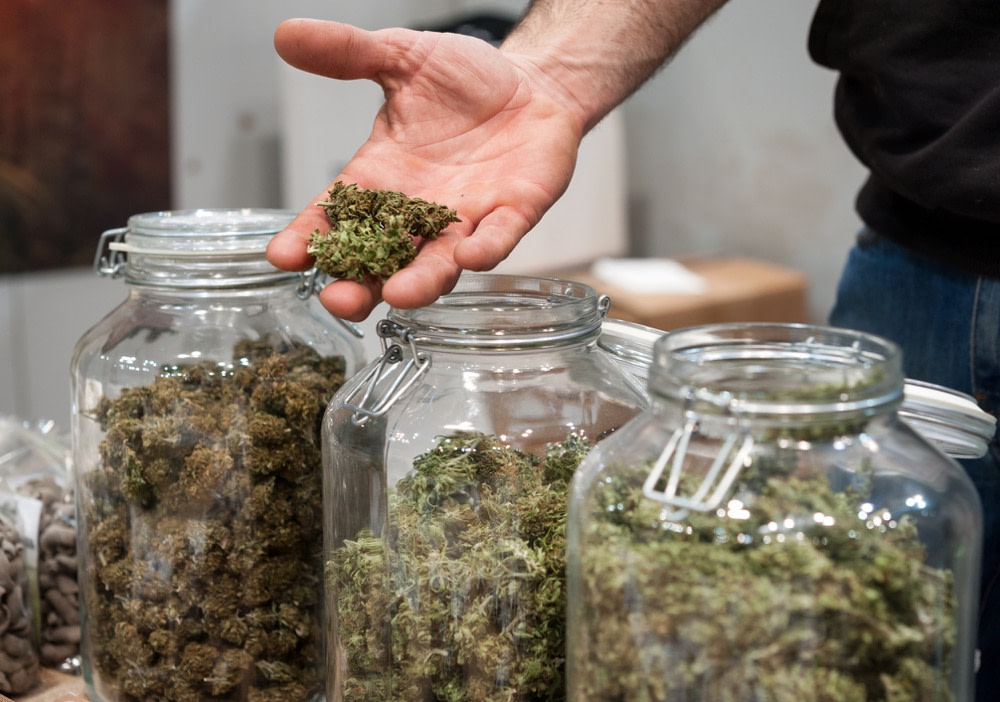5 Takeaways from the MRA’s Adult-Use Emergency Rules

On July 3rd, the Marijuana Regulatory Agency (MRA) released emergency rules concerning Michigan’s adult-use cannabis industry. Signed by Gov. Gretchen Whitmer, the emergency rules enable the MRA to fully implement the 2018 Michigan Regulation and Taxation of Marijuana Act (MRTMA).
While these rules are exhaustive in nature, here are five main takeaways from the newly released adult-use emergency rules.
New License Types
According to the emergency rules, the following are four additional types of licenses:
- Marijuana Event Organizer: This allows the license holder to apply for Temporary Marijuana Event licenses from the MRA.
- Temporary Marijuana Event: This license allows a Marijuana Event Organizer to run an event – which has been approved by the local municipality – where the onsite sale or consumption of marijuana products, or both, are authorized at a specific location for a limited time. Licensed Retailers and Microbusinesses may participate. Additionally, the Marijuana Event Organizer is required to hire security and ensure that all rules and requirements for onsite consumption of marijuana products are followed.
- Designated Consumption Establishment: This license allows the license holder, with local approval, to operate a commercial space that is licensed by the MRA and authorized to permit adults 21 years of age and older to consume marijuana and marijuana products on premises. A Designated Consumption Establishment license does not allow for sales or distribution of marijuana or marijuana products, unless the license holder also possesses a Retailer or Microbusiness license.
- Excess Marijuana Grower: This allows a licensee who already holds five adult-use Class C Grower licenses to expand their allowable marijuana plant count.
Equivalent Licenses
The MMFLA provides the structure for medical marijuana facilities. Additionally, MRTMA provides the structure for adult-use cannabis establishments.
The emergency rules define Equivalent Licenses between the MMFLA (medical) and MRTMA (adult-use) as follows:

Key Similarities/Differences Between Adult-Use and Medical Rules
The adult-use cannabis rules overlap frequently with the medical marijuana cannabis rules. However, there are some significant differences as listed below:
- There are no capitalization requirements for adult-use licenses and fewer financial documents are requested from applicants.
- Adult-use license renewal fees are divided into three tiers in which larger volume licensees will pay more on renewal and smaller volume licensees will pay less.
- Class A Growers and Microbusinesses may accept the transfer of marijuana plants one time from (a) registered primary caregiver(s) so long as the caregiver(s) was an applicant for that license.
- All adult-use applicants are required to submit a social equity plan. The social equity plan must detail a strategy to promote and encourage participation in the marijuana industry by people from communities that have been disproportionately impacted by marijuana prohibition and enforcement and to positively impact those communities.
Adult-Use Licensing Two-Step Application Process
The application process for adult-use marijuana establishment licenses will continue to follow the two-step process that the MRA has been used for the processing of medical marijuana facility operator licenses. Read more about the two-step application process >>
Grower and Processor General Requirements
According to Cannabis Legal Group associate attorney Nick Galendez, perhaps the most interesting addition to the adult-use emergency rules exists in Rule 33:
(8) A marihuana grower or a marihuana processor shall make reasonable efforts to sell or transfer marihuana products to a marihuana retailer not under common ownership or whose majority of ownership is not in common with either the marihuana grower or the marihuana processor to ensure that all marihuana establishments are properly serviced, to efficiently meet the demand for marihuana, and to provide for reasonable access to marihuana in rural areas. The agency may:
(a) Issue an order to place a limitation on a marihuana grower or a marihuana processor specifically limiting the amount of marihuana product that may be sold to marihuana processors and marihuana retailers under common ownership or whose majority of ownership is in common with the marihuana grower or the marihuana processor.
(b) Subject a licensee to sanctions or fines prescribed by Rule 20 for a violation of an order placing a limitation on a state license.
This seems to be aimed at limiting bias or “favors” in the industry, so that all opted-in municipalities are properly serviced with cannabis supply. Additionally, this is to ensure that the demand for adult-use cannabis meets the regulated supply.
Social Equity Plans
As stated above, all adult-use applicants are required to submit a social equity plan. However, the MRA is also required to implement their own social equity plan, according to Rule 23.
The MRA’s social equity plan is required to include information pertaining to:
- Selection criteria
- List of communities
- Available services/resources and names of individuals residing in/planning to operate facility in that community. Examples of services/resources
– Education/outreach to communities and potential applicants from the community
– Waiving/reducing fees for qualified applicants
– Increased assistance with application process
– Coordinating communities’/applicants’/licensees’ use of resources that will allow participation - Requirements to meet to use services/resources offered under plan
- Specific goals/objectives
Watch Cannabis Legal Group’s exclusive interview with MRA Executive Director Andrew Brisbo for everything you need to know if you are a marijuana business or consumer >>
Categories
Cannabis Legal Group Free Consultation
Get in Touch With Michigan's Most Trusted Cannabis Law Firm
We’ve Been Helping Michigan Marijuana Businesses Lay the Groundwork for Long-Term Security and Success for Years, and We Can Help You, Too.
Phone Number:
(248) 301-0626
© Cannabis Legal Group. All rights reserved.

